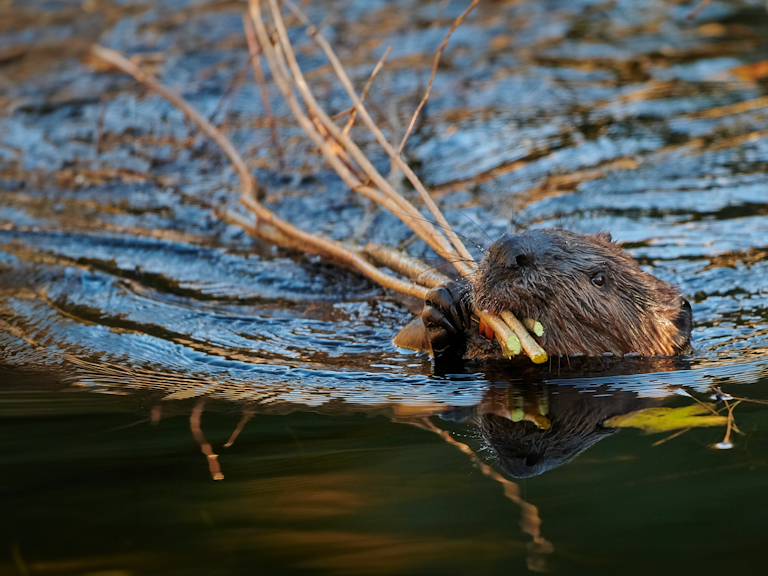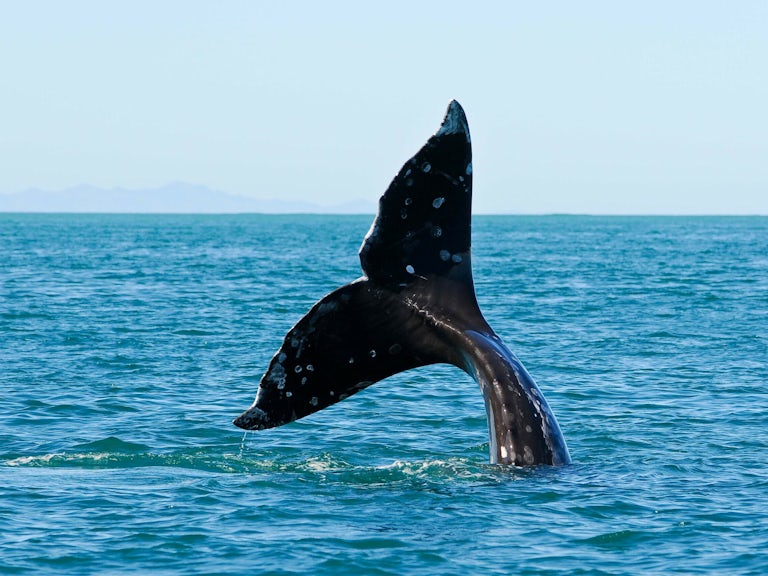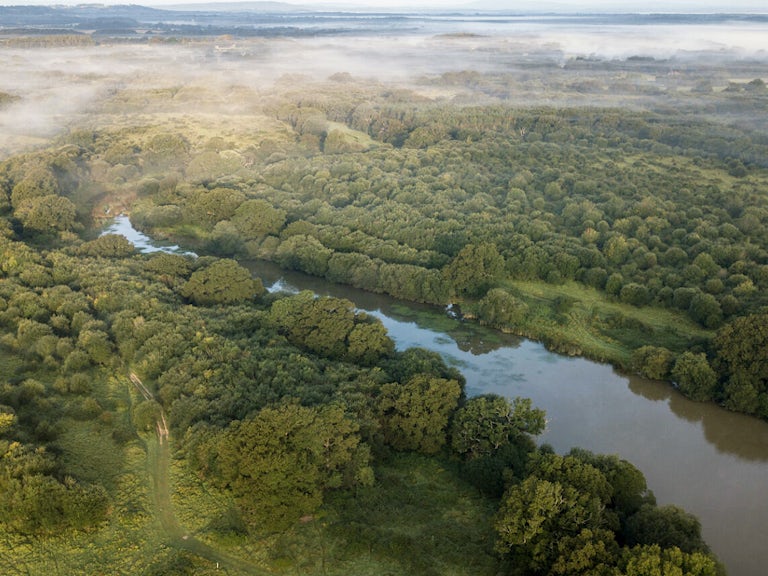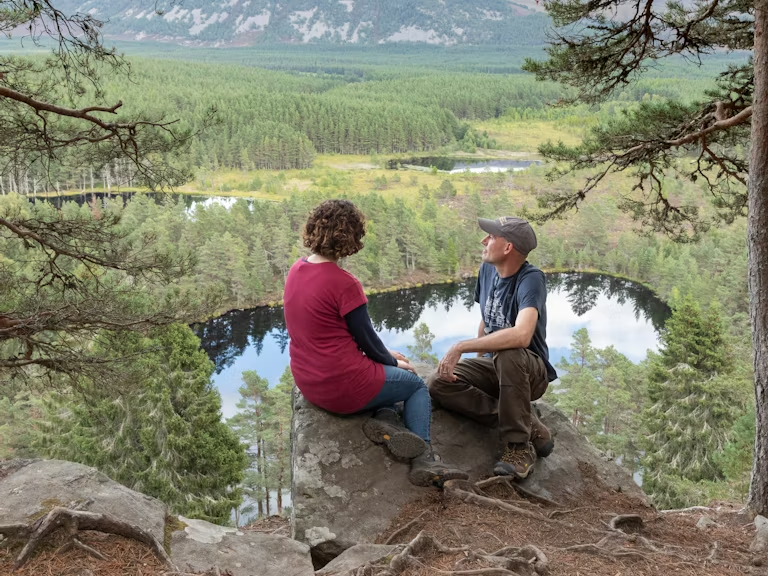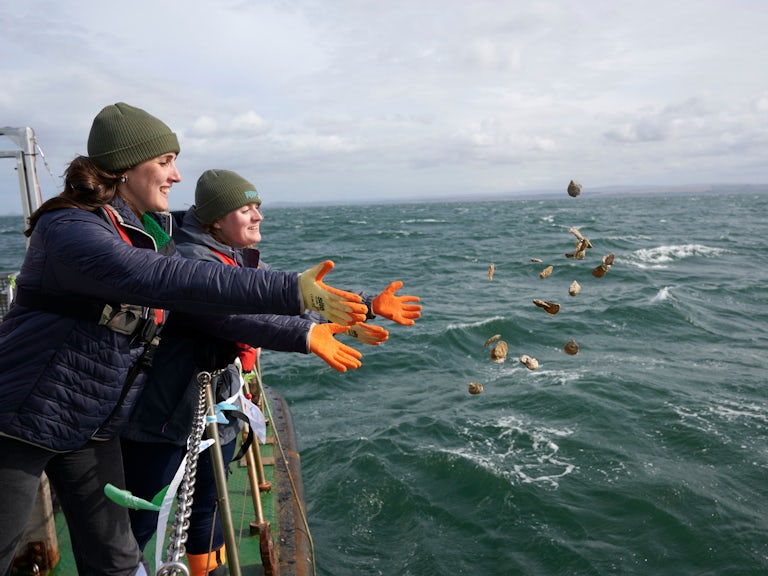Five reasons rewilding can’t wait
What we’ve learnt on the political frontline this party conference season.

Published 23/10/2025
This autumn Rewilding Britain hit the road, taking in five party conferences in four corners of Britain – with one message: rewilding can’t wait. Policy and Advocacy Lead Oliver Newham explains why we have plenty of reasons to be hopeful.
‘Why bother?’ you might ask. ‘Aren’t our politicians all talk and no action when it comes to saving nature?’
Fair question.
A year into the Labour government in Westminster, the optimism that swept across the environmental movement feels, well, dented. We hoped for bold leadership on nature and climate, investment on increasing access to the countryside in England to help people connect with our wilder spaces, action on our seas with all Marine Protected Areas fully protected from damaging activities, and new mechanisms for delivering rewilding at scale on land and in our coastal waters. Instead, we’ve seen hesitation, distraction and a worrying willingness to pit ‘growth’ against the very natural systems that sustain it and indeed all of us.
When backbenchers lose the whip for defending nature, when ‘rapid reviews’ of urgently needed environmental policy delivery plans drag on endlessly and when a red baseball cap becomes the symbol of the government’s regard of environmental protections at its party conference, it’s hard not to feel deflated.
But despair isn’t an option.
Because there’s still time and we have glimmers of hope to draw on: we’ve seen wild beavers returning to rivers in England under new licensing laws, the destructive burning on deep peat in English uplands banned, a draft Land Use Framework for England proposing important and necessary change in how we manage future land use, a major rewilding project receiving long-term (30 years) Environmental Land Management funding and a growing chorus of voices demanding more action now.
That’s why we took our message straight to those in power this party season: rewild 30% of Britain’s land and seas by 2030. Restore, reconnect, and reimagine.
Across hundreds of conversations, with ministers, MPs, MSPs, MSs and activists, one thing was clear: the public appetite for nature recovery is alive and roaring, including within the political parties. Here are five things we learned.
Five key take aways
1. People want greater access to nature and they want it now
Everywhere we went, we found agreement on one thing: access to nature must be treated as a right, not a privilege.
Only 8% of England’s land is open access, something many of us are ashamed of, not least as the disconnect with nature grows. Our demand for a Right to Access Wild Nature saw cut-through – from those at the Lib Dem fringe event we hosted on the topic to the grassroots Labour members and backbench MPs we spoke with. People want to breathe clean air, walk paths in wilder landscapes and our communities want to feel greater ownership and power over the land that sustains them.
Scotland’s responsible access model shows it is possible to move forward on access. It’s time the rest of Britain caught up.

2. Species recovery is leading the way
If you want to see hope in action, look to our wildlife.
At every conference, one question to our team dominated: ‘Which species will come back next?’
The buzz around beavers, lynx, pine martens, bison and white-tailed eagles proves it; Britain’s love affair with wildlife is stronger than ever. Reintroductions of missing species aren’t fringe ideas anymore, they’re mainstream aspirations.
And they are happening. The tide is turning. There is much work to do as policy action is going nowhere near as fast as we’d like and delivery needs to be far more equitable in empowering communities to be at the forefront of action near them. We’ll be pushing our governments all the way on this in the coming year.

3. Food production isn’t the barrier some imagine
‘Can we afford to rewild? Surely we should be focused on our food production.’ That was a question that several politicians asked us.
Here’s the truth: we can’t afford not to.
At fringe events, we presented the same message: food production and rewilding are not enemies. With smarter land use both can thrive. This isn’t a novel concept, many have said it for years, just look at the Dimbleby Review. Restoring nature and natural processes across our landscapes makes farming more resilient to extreme weather, makes soils richer and water cleaner.
The upcoming Land Use Framework publication in England and Land Use Strategy in Scotland and their delivery is a chance to finally plan for the multifunctional landscapes we need. Ones that feed people and restore the natural processes we need to thrive.
Let’s make sure they deliver. We’ll be holding our politicians to account on this.

4. Politicians must be bolder
Labour seems to gets climate, but it hasn’t yet got nature. That was the clear feeling amongst eNGOs and many attendees at the party conferences.
Yes, Labour talks about the connection between climate and ecosystems, but we’re still waiting for decisive action on both in an interconnected way, while watching billions poured into ‘solutions’ like carbon capture storage. The dots are there, they just need joining.
Britain’s nature recovery targets are slipping and everyone knows it, just ask the experts at the Office of Environmental Protection. Yet the mood shouldn’t be one of hopelessness. There are umpteen nature-based solutions (take a look at our Wilder Seas report for just one example) that our government could deliver, but only if it dares.
Nature recovery isn’t a luxury. It’s a foundation for resilient communities, clean air and climate stability. It’s time to act as if it were so.

5. Rewilding is gaining ground
Something promising is happening.
From the Environment Audit Committee recognising rewilding as an important solution to newly appointed Defra Secretary Emma Reynolds holding an ‘I support rewilding sign’ and showing interest in species reintroductions when we talked, we saw genuine enthusiasm for rewilding.
Politicians, party members and even a few wildlife celebrities proudly posed with our ‘Rewild 30% by 2030’ signs. The idea that rewilding is radical and undeliverable is fading fast, more are now seeing it for what it is: common sense.
Rewilding brings hope. It brings life. It brings prosperity back to forgotten places.
And it’s here to stay.
Hope, momentum and what comes next
Change is slow, yes. Far too slow. But the shift is real.
Across party lines, across Britain, a movement is building, demanding nature’s return, fairer access and a future where people and wild places thrive together.
Rewilding isn’t waiting. Neither should our politicians. And neither should we.
Stand up for nature
Thank you for acting wild.
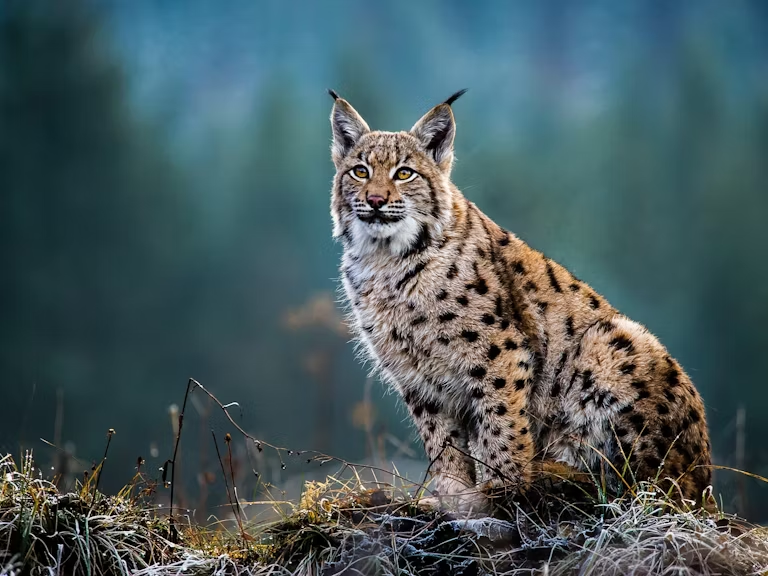
Push for change
Urge your local leaders to act wild and commit to supporting the Rewilding Manifesto.
Email your MP
Join the movement
Keep up to date with Rewilding Britain’s campaigns for change by joining our mailing list.
Sign up to our newsletter